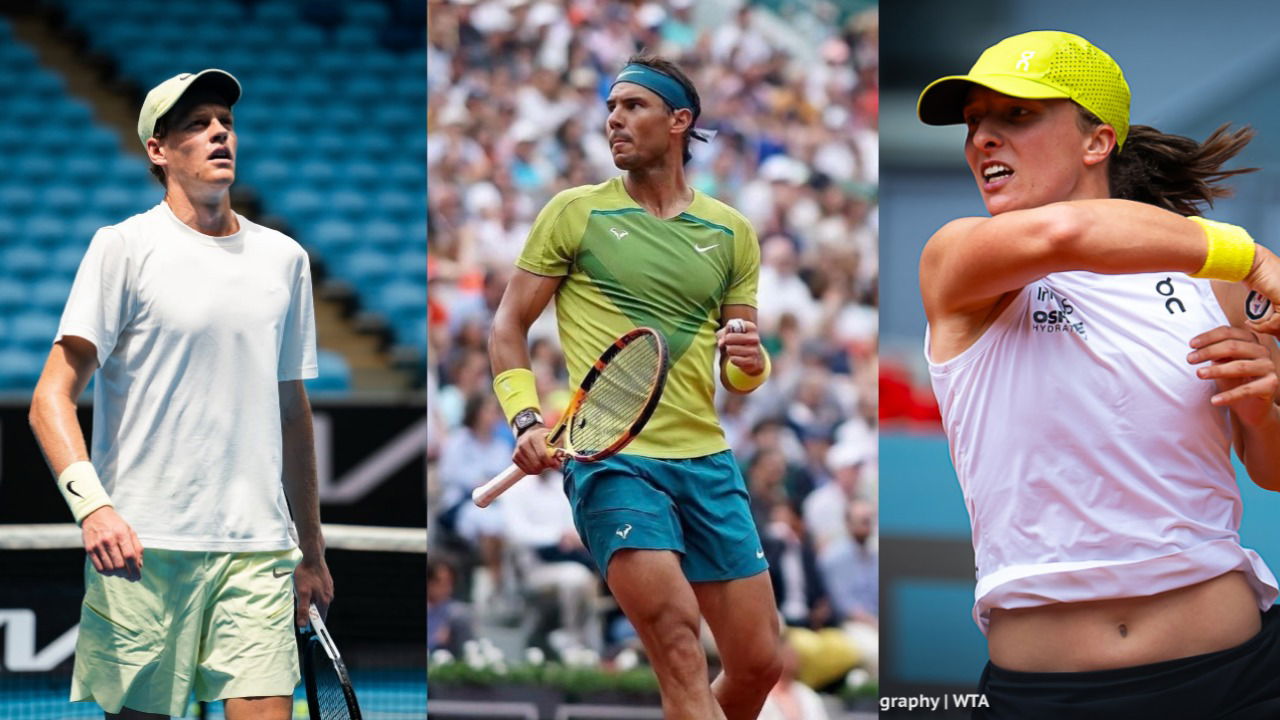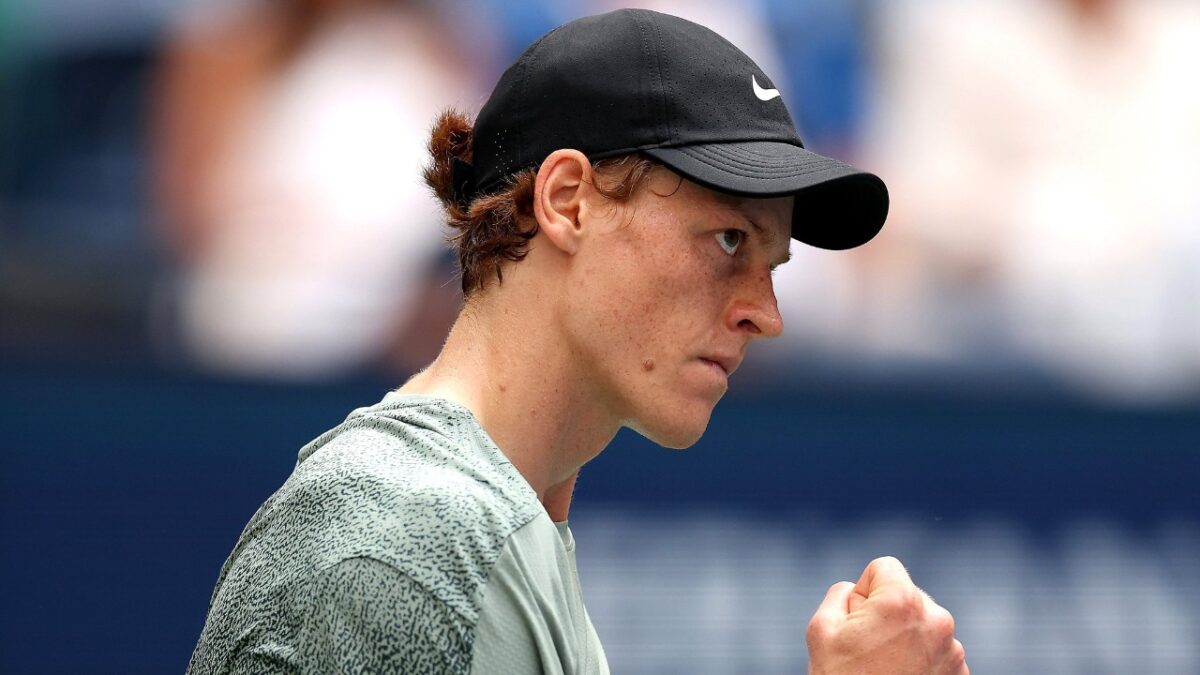Renowned doping expert controversially adds Rafael Nadal to the exempted ITIA cases alongside Iga Swiatek and Jannik Sinner
Jannik Sinner's three-month doping suspension ends today, and he will be gearing up for the Rome Masters.

Jannik Sinner, Rafael Nadal, Iga Swiatek (images via X)
Dr. Jean-Pierre De Mondenard, a sports doctor and an independent observer of doping in sport for the past 50 years, recently weighed in on Max Purcell’s doping suspension, taking a dig at the International Tennis Integrity Agency (ITIA). Purcell, a doubles specialist and winner in this discipline at Wimbledon and the US Open, is suspended for a year and a half for receiving intravenous infusion of vitamins exceeding the authorized limit.
The Sydney native won the doubles title at Wimbledon in 2022 alongside his compatriot Matthew Ebden and at the US Open in 2024 as a pair with Jordan Thompson, another Australian player. In singles, he reached a ranking of 40th in October 2023.
With the ITIA, the independent tennis agency, we’re used to minimalist sanctions. Sinner was cleared but sentenced to three months by WADA, Swiatek to one month, and now Purcell to 18 months instead of four years. And R. Nadal, never troubled for his repeated injections. Nice ITIA!
Dr. Jean-Pierre De Mondenard via X
Purcell admitted to unknowingly receiving intravenous vitamin infusions of more than 500 ml on December 16 and 20, 2023. The limit set by the World Anti-Doping Code is 100 ml in a 12-hour period. His suspension, taking into account his voluntary withdrawal, will end on June 11, 2026. He will also have to forfeit his results and prize money for the period between December 16, 2023, and February 3, 2024.
6. Dopage– Avec l’ITIA, agence AD indépendante du tennis, on est habitué aux sanctions minimalistes. Sinner blanchi mais 3 mois par l’AMA, Swiatek, 1 mois et maintenant Purcell 18 mois au lieu de 4 ans. Et R. Nadal, jamais inquiété pour ses injections à répétition. Sympa l’ITIA !
— Docteur de MONDENARD (@DeMONDENARD) April 29, 2025
Since 2015, infusions exceeding 100 ml per 12 hours have been subject to a 4-year suspension. Purcell’s cooperation with the ITIA allows, according to the agency, to reduce the sanction by 25%.
Jannik Sinner and Iga Swiatek faced doping controversies last year
Max Purcell‘s recent doping suspension news follows two other high-profile tennis doping cases that came to the limelight the previous season. World No. 1 Jannik Sinner recently came out of a three-month doping suspension. On 20 August, 2024, an independent tribunal announced that the Italian had tested positive for the banned substance clostebol in separate tests from March that year, but he was exonerated initially.

The tribunal accepted Sinner’s explanation that the steroid had entered his body via. massages administered by his physiotherapist, who had used a spray that contained clostebol to treat an injury on his own hands.
The World Anti-Doping Agency (WADA) appealed this decision to the Court of Arbitration for Sports (CAS), and in February 2025 the appeal reached a settlement. Under this settlement, the positive results were determined to be due to inadvertent contamination, and Sinner was suspended for three months. The overall process was criticized by many, especially for its leniency and lack of transparency.
On the other hand, Iga Swiatek was handed a one-month suspension in November 2024 following a positive test for the banned substance trimetazidine. The drug was found to be a contaminant in a sleep medication, melatonin, that the Pole was taking, so she was given a penalty that was at the lowest end of the range for “No Significant Fault or Negligence”.
Dr. Monenard also clubbed these cases with the case of Rafael Nadal, who has repeatedly taken injections but never been investigated. Nadal had usually taken painkillers for playing when he faced an injury.

